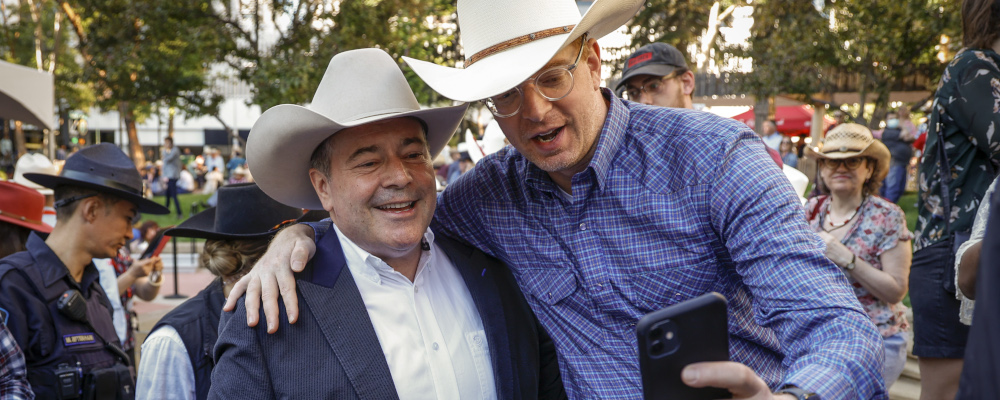The following is the latest installment of The Hub’s new series The Business of Government, hosted by award-winning journalist and best-selling author Amanda Lang about how government works and, more importantly, why it sometimes doesn’t work. In this five-part series, Lang conducts in-depth interviews with experts and former policymakers and puts it all in perspective for the average Canadian. Listen to the accompanying interview with former premiers Jason Kenney and Kathleen Wynne on your favourite podcast platform or at The Hub.
Maybe this is obvious, but any discussion about how government functions is incomplete without the political view.
At least as far as their politics go, Kathleen Wynne and Jason Kenney may seem like polar opposites. Wynne is a left-leaning Liberal who was a provincial politician for almost 20 years before becoming Ontario’s 25th Premier. Kenney was part of the right arm of the Conservative movement in Canada, serving Prime Minister Harper for nine years before moving to provincial politics, ending as premier of Alberta. What they share was a desire to make change, and lead from a place of idealistic conviction. Both admit to a gap between those ideals and eventual reality. And arguably both became victims of the political reaction to their ideals.
Wynne shared the frustration of voters at the pace of change. “Sometimes where there’s an emergency, things have to happen quickly, and I think people take from that, well then why can’t you move quickly on everything else?” Wynne learned over time that the pace might be slower than she wanted. “That was very frustrating to me…Things to not happen instantly.” Add to that the feeling that there were many things she wanted to do, but governing becomes a game of setting priorities: “You can’t do everything.”
And Kenney is clear-eyed about the “growing questions of state capacity.” He points to health care as one glaring example of the system not working as it should. There are other examples of inefficiencies, including immigration backlogs, that are not the result of cutbacks and are persistent despite higher and higher spending.
The relationship with the public servants who support politicians is key, and both Kenney and Wynne are deeply respectful of the expertise of the civil service.
As an MPP Wynne was part of the committee working to ensure the Walkerton water incident could never happen again. She walked into cabinet to find the ministers and their aides flanked by the senior bureaucrats and scientists who understood the issues deeply. “I remember thinking, I am so glad these people are here because I really don’t know anything about water science. And I know my colleagues around the table don’t. So thank God, there are people who know and have a deep understanding of how this all works.”
If there was a thing she would change if she could, Wynne would see more contact between levels of government, more frequently. “We tended to talk when there was a thing we had to fix or negotiate,” but more regular interactions would make the process better. For his part, Kenney thinks the division of power between levels of government—and the accompanying political jockeying—can be detrimental. “The federal government always wants to be seen to be playing a larger role in a whole range of areas,” he says, using its fiscal clout to “sort of buy its way into provincial jurisdiction.”
Both consider themselves activist politicians, and Kenney says the role of senior civil servants is to “provide fearless advice and loyal implementation,” where fearless advice includes a counter view to the policy. “It requires a relationship of trust,” where the intentions of the minister are made clear. “The job of the political person is to probe the outer limits of what is practical, and then the bureaucracy’s job is to listen and where possible get to yes.”
For both Kenney and Wynne, the political reality of an issue became larger than the policy. In Ontario, the sale of Hydro One became a political nightmare. “We made a decision based on lots of evidence and lots of research that selling Hydro One was the right thing to do. But the politics of it were dreadful.” Voters saw an increase in hydro rates as related, which they were not. “In the moment, I didn’t even realize how awful the politics were going to be.” She points to the location of natural gas plants in Ontario as another example where considering the politics better might have smoothed the path. “There needed to be a better process,” but in the end, Wynne conceded the decision was the wrong one to begin with.
In Alberta, the anger about COVID lockdowns was surprisingly strong and even misaligned with reality. “Arguably we never really had lockdowns in Alberta,” Kenney says, but any suggestion of caution was met with outrage. It was “just astonishing that all of the credibility I thought I had built up over 25 or 30 years as a defender of limited government, a powerful civil society, and personal freedoms…none of that seemed to matter.” Kenney understands the anger, and frustration, but remains surprised that his message was lost. “I stood up at a news conference and said ‘folks, we are going to have to bring in some really difficult and painful restrictions because we are running out of hospital beds.”
Part of the problem, he believes was a whole segment of the population that had opted out of mainstream news, so reaching them with a message about the issue was difficult. Even a seasoned veteran like Kenney was surprised. “I was a principled conservative, often at the front of the parade for thirty years, on foreign policy, security, moral, cultural, fiscal, economic—you name it. And then suddenly I found myself being regarded as a shill for the World Economic Forum, somebody was a craven power-hungry dictator, arbitrarily violating people’s fundamental freedoms.”

Voter anger can become extremely personal. Wynne’s approach is to have what she calls “thick but porous” skin. “You can’t have a suit of armour on, because then you don’t hear what’s going on. And you can’t take in the pain that people are bringing to you. As a leader, you have to be able to do that.”
“If you don’t listen to them, if you lecture at them, it’s not going to go so well. But if you listen, which is a big part of a politician’s job, then you’re going to have a good experience.” In some ways the more heightened the emotional pitch, the more those views should be considered. “When the voices are very agitated, and there is a building resentment, then you have to pay attention to that, even if what you’re doing you believe is the right thing to do.”
Most of us understand politics to be the art of the possible. Democracy is a beautiful and messy process, and anyone who has argued over a television remote control knows that compromise doesn’t mean everyone wins, but that no one does. It’s easy to forget that the folks who enter the arena—who are willing to put their names on signs and ballots, knock on strangers’ doors both metaphorically and literally, and ask for support to do a job few want to do—are usually people with ideals and a vision. Ultimately, they may be forced to compromise some of their goals, but it’s not the starting point.
Kenney agrees that walking the line is the essence of politics. “The job of political leaders wherever possible is to try to find a broad coalition of common interests and values without being steered by or controlled by the fringe…I think that is possible.”
For Wynne, her time in office was something she felt was a privilege, a platform to make a difference, worth any trouble that came with the role. “I always had to look and say, Okay, what can I get done today? I’m not going to waste this, I have to actually do things that I think are important.”
Recommended for You
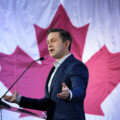
Poilievre will be more Mulroney than Ford and Canada-India relations will stay frosty: The Hub’s can’t-miss predictions for 2025
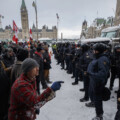
Get ready for protests in the streets and an election after the summer: The Hub’s can’t-miss predictions for 2025
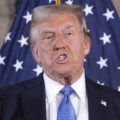
Trudeau will flounder, Trump will tower, and the housing crisis will get worse: The Hub’s can’t-miss predictions for 2025
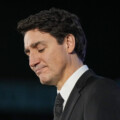
The Week in Polling: Most Canadians want Trudeau to resign; Canadians do not want to become the ’51st state’; and pride in the country drops double digits

